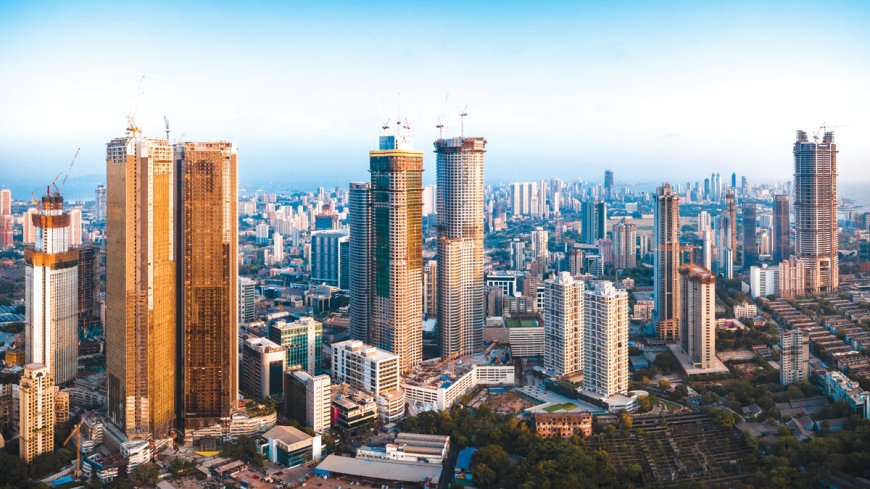Resolving disputes, reducing risk: the case for structured mediation in India’s construction sector
Disputes are an expected reality in construction. Projects are complex, timescales are tight, and contract relationships involve multiple stakeholders with overlapping interests and obligations.

Disputes are an expected reality in construction. Projects are complex, timescales are tight, and contract relationships involve multiple stakeholders with overlapping interests and obligations. When something goes wrong, the way the conflict is handled determines whether it becomes a manageable issue or a costly, protracted disruption.
For India’s construction sector, where infrastructure growth continues to accelerate, the ability to manage disputes effectively is a necessity.
Dispute resolution helps mitigate major project risks
Across the construction lifecycle, formal dispute resolution mechanisms such as mediation, adjudication, and arbitration can play a central role in de-escalating tensions, preserving project momentum, and preventing long-term financial or reputational damage. Common risk areas include:
Contractual disputes: Ambiguities or conflicting interpretations in contracts often lead to disagreements between contractors, clients and consultants. Structured resolution methods provide a way to clarify intent and responsibilities without resorting to litigation.
Delays and schedule overruns: Time-related claims are among the most common in construction. Mediation offers a constructive space for parties to address the root causes of delay, re-align expectations, and agree on revised timelines or compensation.
Cost overruns and payment delays: Disputes over scope creep, change orders or interim payments can limit progress and disrupt supply chains. Resolution mechanisms help maintain cash flow and reinforce contractual obligations without damaging working relationships.
Quality issues and defects: Differing views on standards of work completed can escalate quickly. Neutral evaluation during dispute resolution can help identify whether standards have been breached and what the appropriate remedies should be.
Claims for extensions and damages: As projects evolve, unforeseen issues arise. Having a structured forum to assess claims for time or cost allows parties to resolve them more objectively and fairly.
Compliance matters: From health and safety concerns to environmental breaches, structured resolution provides a lower-conflict path to resolving accountability without derailing the entire project.
When handled early, many of these disputes can be resolved efficiently, with fewer financial and reputational consequences. Mechanisms like mediation allow parties to reach flexible, confidential solutions that support continued collaboration, even in difficult circumstances.
 The role of RICS in supporting dispute resolution capability
The role of RICS in supporting dispute resolution capability
The Royal Institution of Chartered Surveyors (RICS) is a long-standing and trusted provider of dispute resolution mechanisms, especially in high-stakes, technical environments like construction. Through the RICS Dispute Resolution Service (DRS), RICS promotes professional standards, offers neutral appointments, and delivers training to support effective conflict management.
Our RICS Mediation Training Programme is delivered face-to-face in New Delhi. This immersive, five-day course is designed to give professionals the practical tools to mediate disputes in land, property, construction and infrastructure.
Practical takeaways from the RICS Mediation Training Programme
The training is built around the RICS ACRE™ approach, which stands for Analytical, Commercial, Restorative, Expert. Participants develop mediation techniques that balance technical understanding with commercial awareness and people-focused communication.
Key learning outcomes include:
· Understanding how to manage disputes through facilitative and evaluative mediation techniques
· Gaining practical experience in structured negotiation and how to guide parties towards workable solutions
· Developing the confidence to act as either a party representative or an independent mediator
· Receiving hands-on coaching and feedback through role play and real-world case scenarios
· Learning how to address complex disputes while preserving professional relationships
The programme also prepares participants to apply for RICS Accredited Mediator status, which is recognised globally. On successful completion, delegates are also eligible to apply for membership with leading professional bodies including the Chartered Institute of Arbitrators (CIArb) and the International Mediation Institute (IMI).
Why now?
As India’s construction sector scales, so do the risks, but the industry’s approach to managing them can change. Professionals who are trained to understand, manage and resolve disputes effectively will be better placed to protect their projects, their teams, and their organisations.
Structured mediation is not just about resolving conflict - it’s about keeping projects moving, maintaining trust, and delivering outcomes.







